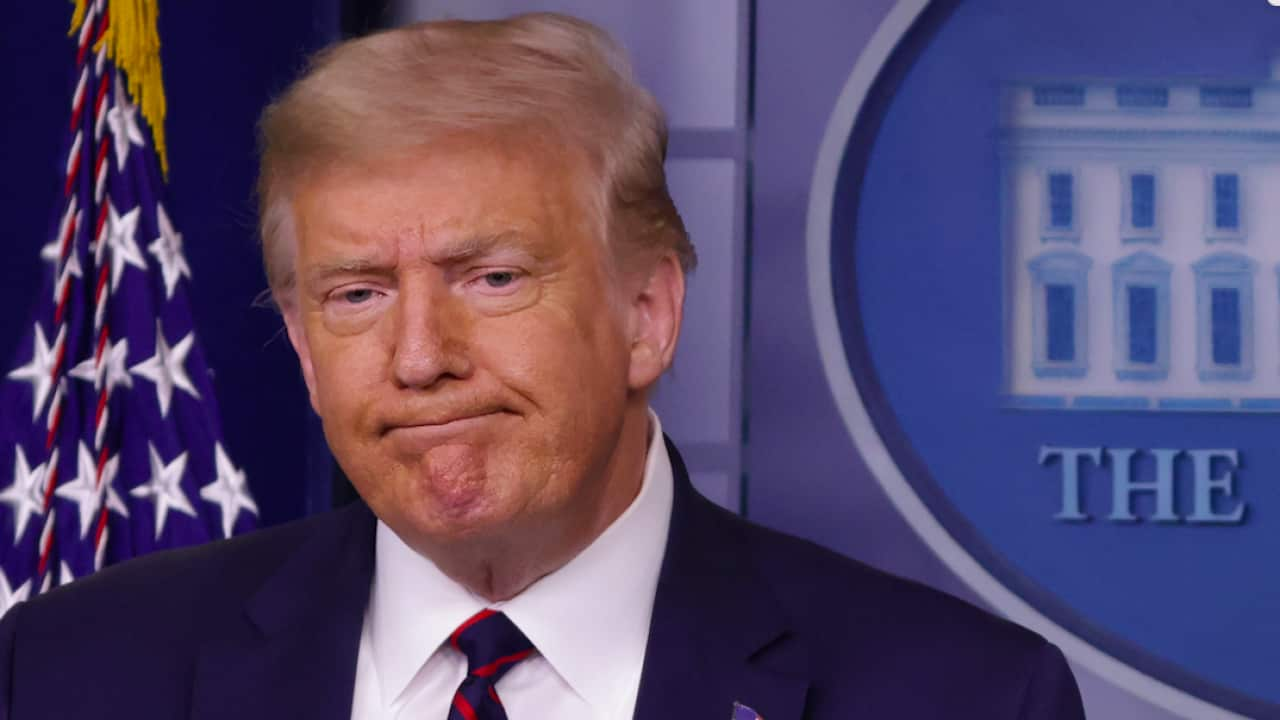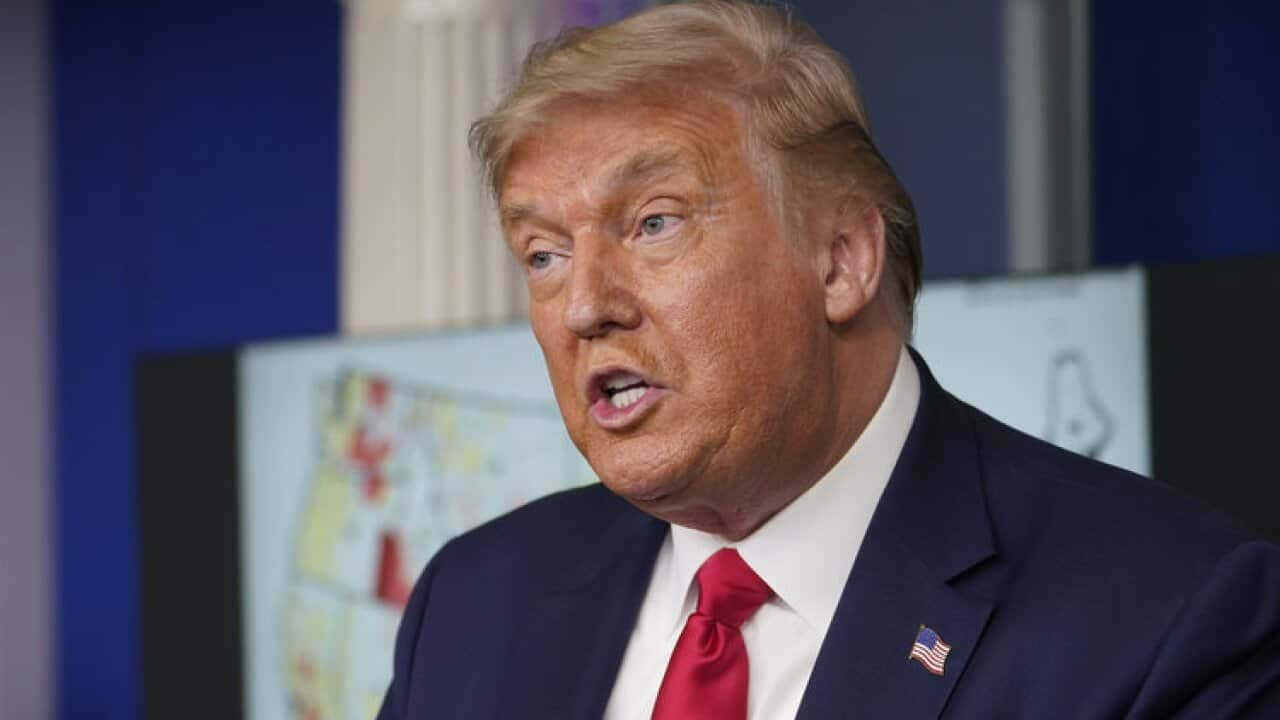President Donald Trump is facing widespread criticism for .
On Thursday, Mr Trump shared a discredited theory that increased postal voting due to the COVID-19 pandemic could lead to widespread voter fraud.
But does a US president have the authority to postpone the date of a national election?
The short answer - absolutely not.
"[Mr Trump] has no power at all to delay the election," Dr David Smith, a senior lecturer at the University of Sydney's US Studies Centre, told SBS News.
Dr Smith said the US Constitution only gives that power to Congress, with both Democrats and Republicans firmly committed to the 3 November date.
Since 1845, the election date has been fixed as the first Tuesday after 1 November and has never been delayed.
"In 1944, at the peak of American involvement in WWII - the election went ahead," Dr Smith said.
"At an absolutely critical point in the Civil War in 1864, when it looked like Abraham Lincoln was going to lose - the election still went ahead." Since Mr Trump tweeted, top Republicans cited these elections while dismissing Mr Trump's suggestion.
Since Mr Trump tweeted, top Republicans cited these elections while dismissing Mr Trump's suggestion.

Donald Trump at a press conference after his tweet. Source: Getty
"Never in the history of this country, through wars, depressions and the Civil War, have we ever not had a federally scheduled election on time. We will find a way to do that again this November third," Senate Majority Leader and Trump ally Mitch McConnell said.
House Minority Leader and fellow Trump ally Kevin McCarthy made a similar point.
"Never in the history of the federal elections have we ever not held an election and we should go forward with our election." Democratic US Representative Zoe Lofgren, who chairs the House committee overseeing election security, was scathing.
Democratic US Representative Zoe Lofgren, who chairs the House committee overseeing election security, was scathing.

People wait in line outside of a COVID-19 testing site in Florida. Source: AAP
"Under no circumstances will we consider doing so to accommodate the president's inept and haphazard response to the coronavirus pandemic, or give credence to the lies and misinformation he spreads," Ms Lofgren said.
'I don't want to see a crooked election'
Mr Trump appeared to backtrack at a press conference shortly after his tweet on Thursday.
"I don't want to delay, I want to have the election," he said.
"But I also don't want to have to wait for three months and then find out that the ballots are all missing and the election doesn't mean anything ... I don't want to see a crooked election.
"This election will be the most rigged election in history if that happens." Dr Smith voiced concern that Mr Trump's initial tweet and following comments were part of a "dangerous" theme.
Dr Smith voiced concern that Mr Trump's initial tweet and following comments were part of a "dangerous" theme.

A protest in New York last month. Source: Getty
"The real problem is that this is another instance of him trying to delegitimise the election result ... which is incredibly dangerous for the president to do," he said.
"[He's] preparing to declare the result fraudulent, probably because he thinks he's going to lose given what the polling numbers look like."
According to the latest polling average by RealClearPolitics, the Democrat's Joe Biden leads Mr Trump by more than eight points nationally.
Dr Smith was one of many experts who has slammed Mr Trump's claim that mail-in voting can lead to increased voter fraud.
"There is no evidence that mail-in voting is associated with increased fraud. If anything, mail-in voting actually creates a paper trail that makes it more reliable," he said.
During recent US primaries - which determine the presidential candidate for each party - some states struggled to manage a surge in mail-in votes, leading to delays in results being announced.
"The main problems have been around access and that it can take a long time to count ... [Mail-in voting] has its problems, but fraud is not one of them," Dr Smith said.
"[So] the correct response [in the pandemic] is to make sure that states actually have the resources that they need to run an election which is going to have a heavy mail-in component."
Dr Smith called the 3 November election date "critical".
"Even if the pandemic worsens in the US, delaying the election is not the solution," he said.
"The fact that [the US election] happens at a defined time ... is absolutely critical to the integrity of American democracy. That date can't be changed."
During the pandemic, more than 4.4 million Americans have tested positive for COVID-19 and more than 150,000 have died.
Additional reporting: Reuters












